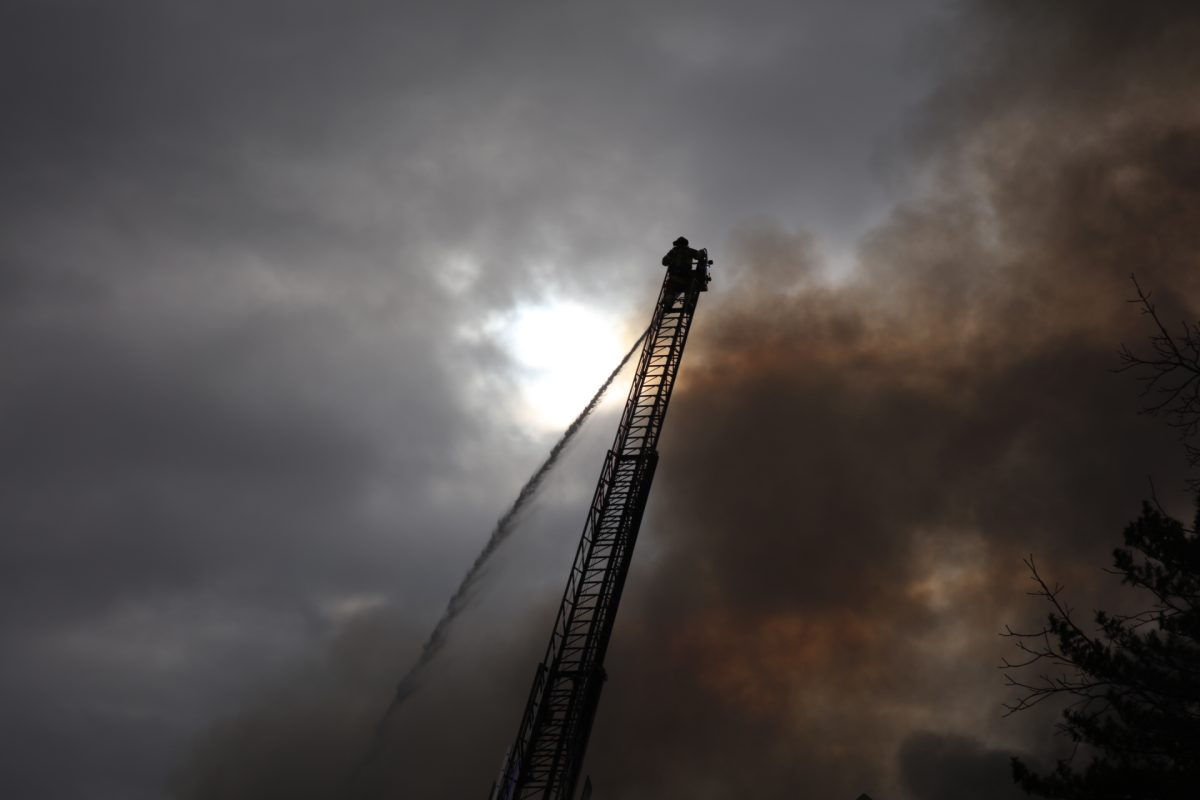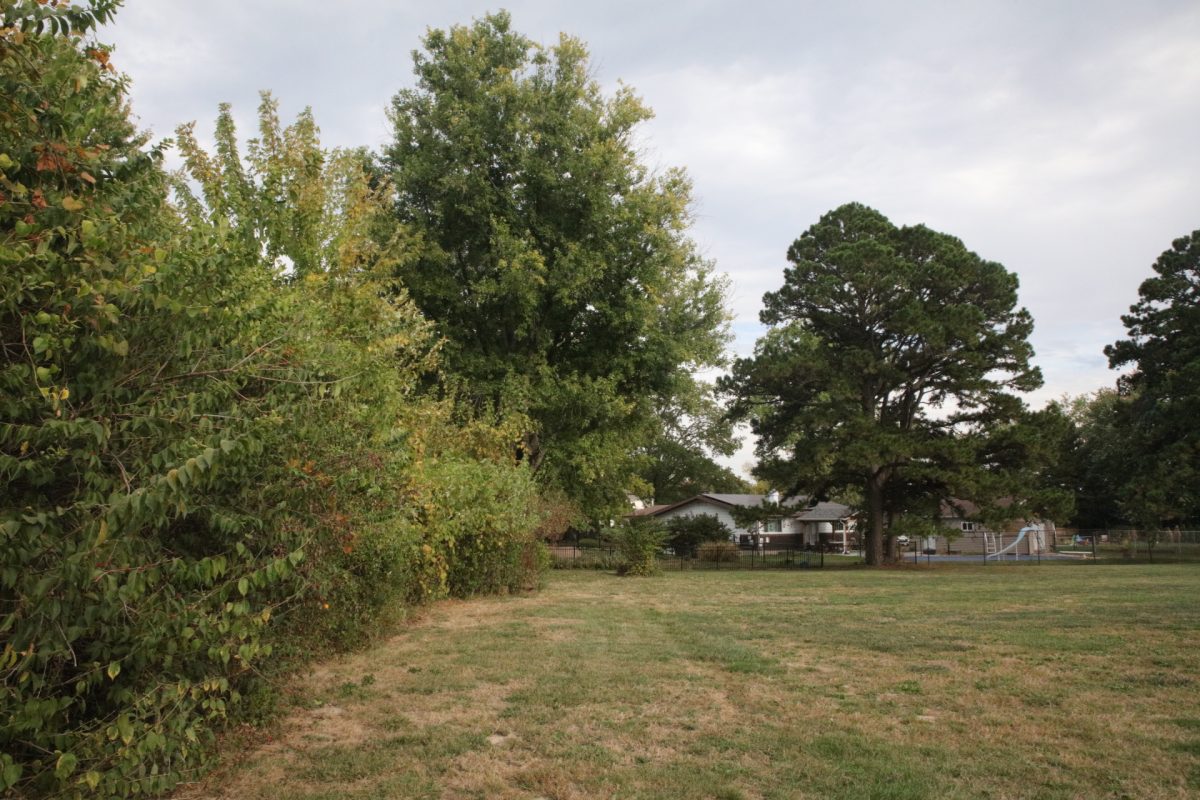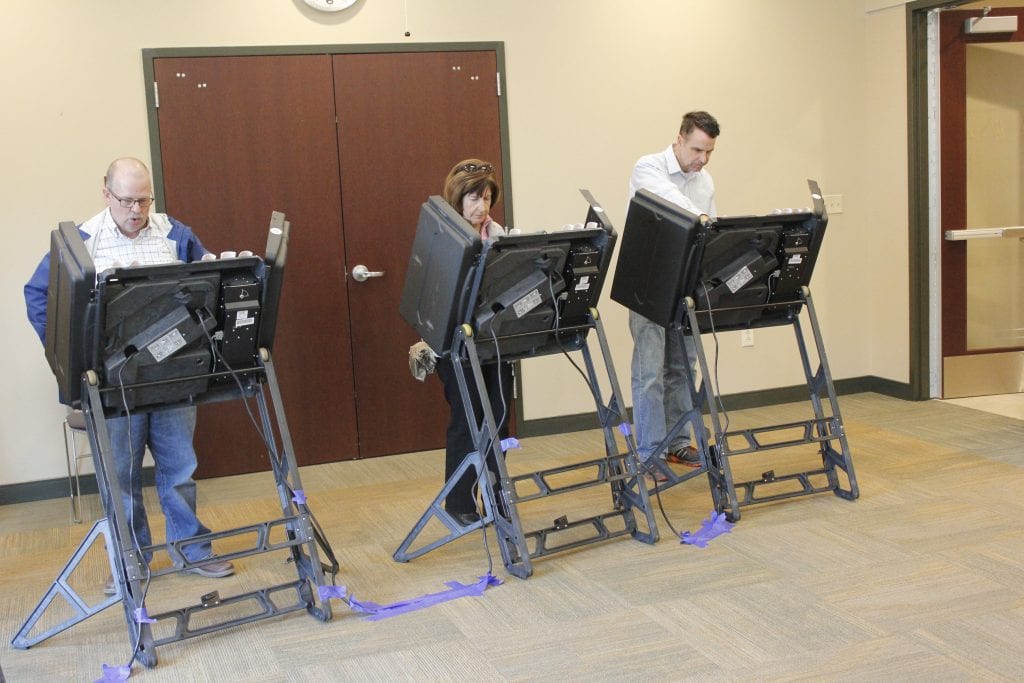Five Lindbergh Schools Board of Education candidates answered a range of questions including questions about academic performance, equity in education, standards-based grading and more at a forum hosted by the League of Women Voters March 13.
Candidates for the April 4 school board election are Matt Alonzo, Andrew Lawson, Paul Leinweber, David Randelman and Christy Watz. Up for election are seats held by incumbents Alonzo, Watz and Cathy Carlock Lorenz, who did not file for reelection. The seats carry three-year terms.
Lawson, Leinweber and Randelman would be newcomers to elected office — Randelman unsuccessfully ran for the Lindbergh Board of Education in 2022.
Over 50 people attended the forum held at Lindbergh’s Central Office. Attendees were able to submit questions for the candidates prior to the forum, as well as at the forum.
Several of the questions submitted pertained to Lindbergh’s academic performance and declines in reading and math proficiencies in the district.
Lawson said it was important to look at the needs of individual students and using the “right mix of tools” to help students succeed.
“There’s still work to be done and … we are focused on meeting the needs of each student and those needs are different. No one tool is going to work for 100 percent of the students,’ Lawson said. “We need to find the right mix of tools that work for every student so that they can make each student their best self.”
Randelman suggested moving back to evidence-based curricula, such as phonics and the use of math interventionists.
“We can see that a lot of our students are struggling, I’ve spoken to many teachers in our district and they’re all saying the same thing. They need more support,” Randelman said. “I think we need to give that support to our teachers and we need to take a good honest look at what we’re teaching and make sure it’s evidence-based.”
Leinweber had a more creative suggestion to address academic performance with the use of “tweachers,” which he explained as a teacher between grade levels that helps struggling students in the top and bottom ends of each grade.
“I think if you did simple things like add a teacher between second and third grade and a teacher between fourth and fifth grade and called them a ’tweacher,’ who would handle those students who are struggling on the top end, combine them with the kids excelling on the bottom so you don’t lose those bottom-end and top-end students,” Leinweber said.
Lindbergh’s ranking among other districts in the state was also the subject of several questions. An online report from School Digger using data from 2021-2022 ranks Lindbergh as 36th in the state, higher than neighboring South County district Mehlville, which ranked 47th, but lower than Kirkwood, which ranked 13. Data on Niche’s website ranks Lindbergh as 13th — Kirkwood is ranked No. 3 and Mehlville is ranked 130rd.
Alonzo and Watz said the district had deprioritized state testing to focus on other areas of education and that state testing is not particularly indicative of student skills.
“I do agree that Lindbergh made a shift to move away from teaching to the test and teaching to the whole student, and I actually agree with that decision. When you look at tests that really matter to students, tests like the ACT test, that is where students are getting their scholarships or getting entrances into colleges,” Alonzo, a teacher in the Parkway School District said. “When we look at state testing, it really is more of an accountability test rather than a student-centered test.”
“Different rankings are changing, they’re putting different denominators in there. So I think you really have to look at that … I’m super excited about our journey forward and leaving that information behind and moving forward and just really focusing on the growth for our students, for all students. We have great graduation rates, we have an excellent number of students that do something after high school … I think those are the two measures you really want to look at.”
Candidates were asked if they agreed with the district’s shift to standards-based grading. Standards-based grading is a system that evaluates students’ progress toward mastering specific learning targets. This school year was the first year standard-based report cards were used at the elementary level.
Both Alonzo and Lawson were in favor of standards-based grading, while Randelman and Leinweber disagreed.
“Growth measurements and not giving percentiles helps kids who want hope. It does help kids who want hope but it doesn’t help the kids that need challenge. That’s the only issue that I have with standards-based grading,” Leinweber said.
Randelman said that he would prefer a return to “grading everyone objectively.”
“The problem with equity is equity is supposed to be without partiality and this is exactly the opposite of that. We are grading based on all sorts of other factors and I think that’s not a healthy thing. I think we need to grade everyone objectively but at the same time we want to support and give every student the opportunity that they can get to the maximum potential that they have, but I really disagree with this move that we’re doing,” Randelman said.
Watz said she agreed with standards-based grading in the lower levels after seeing growth in her daughter who attends school in the district, but that she wasn’t sold on standards-based grading at the high school level.
“I’m not sure if I am in favor of it because colleges haven’t quite aligned. Colleges are still ‘A,B,C’, GPAs,” Watz said. “I can tell you I saw some success in elementary school because my daughter … when (her) report card came home and it said you need to master the five-times tables, she got that. It clicked for her … I’m not sure about high school yet.”




















